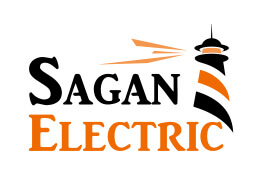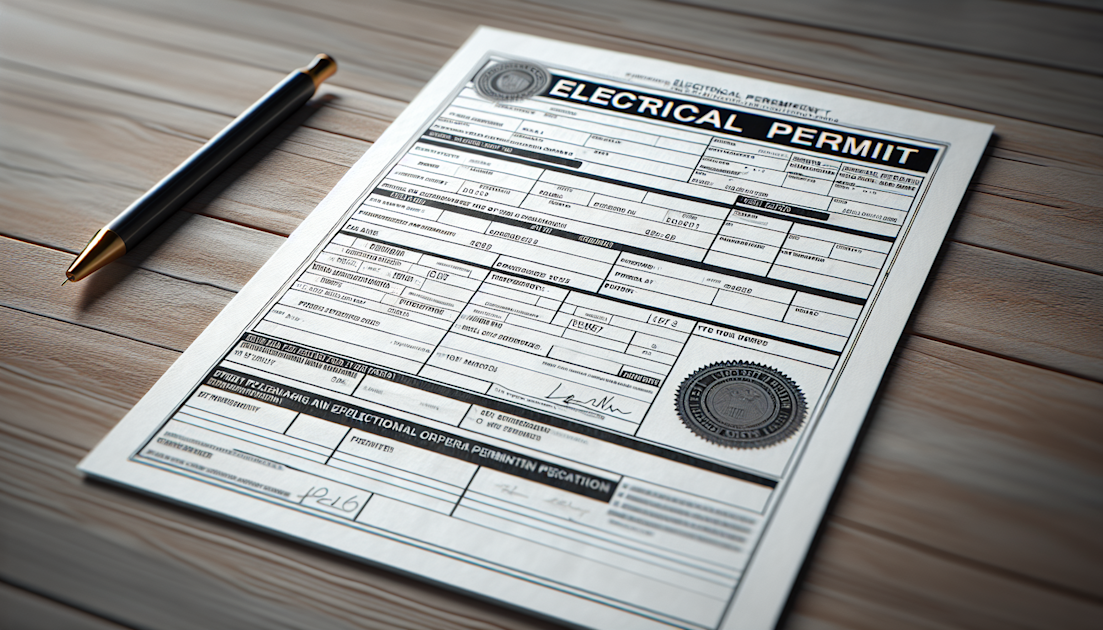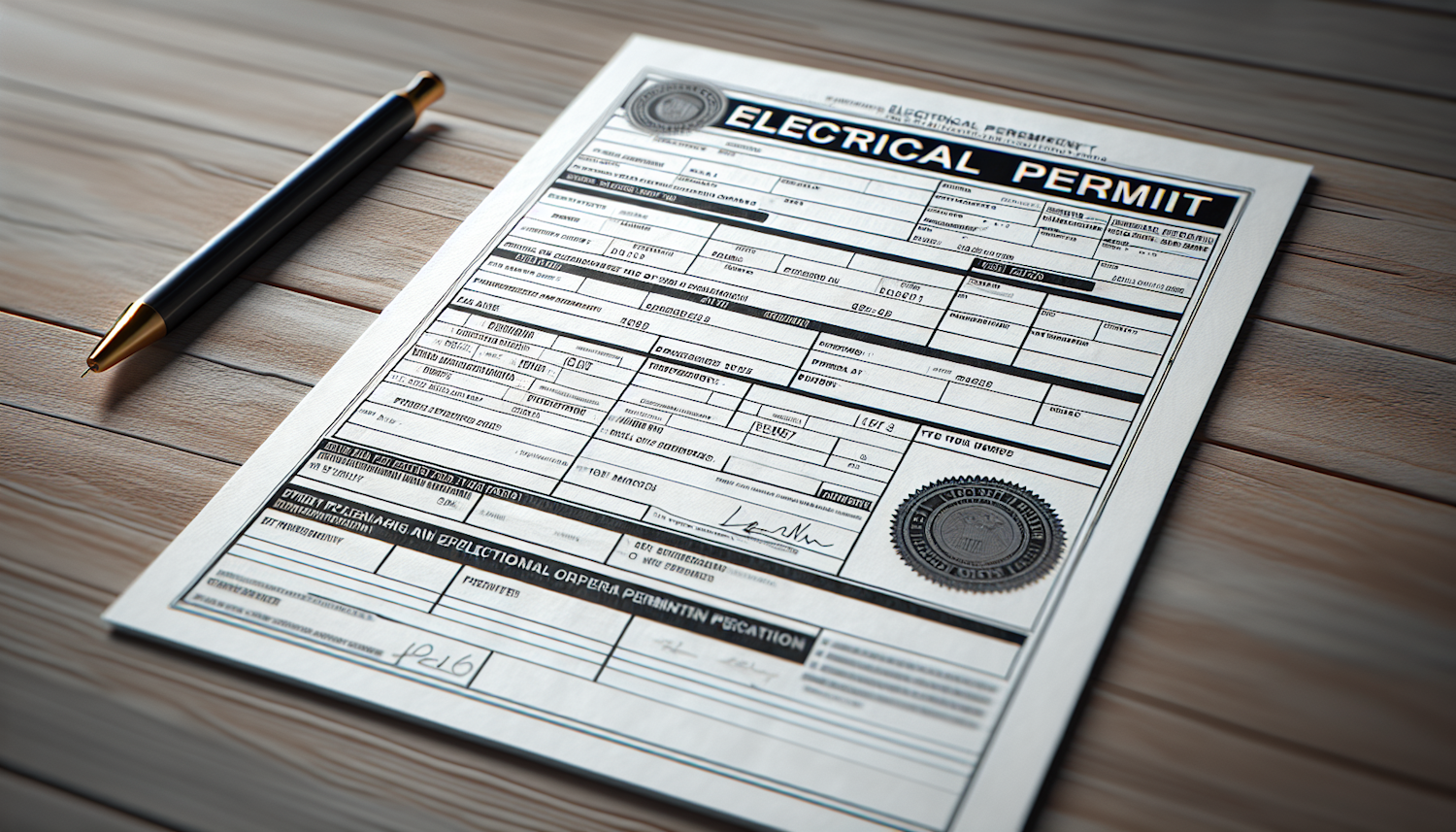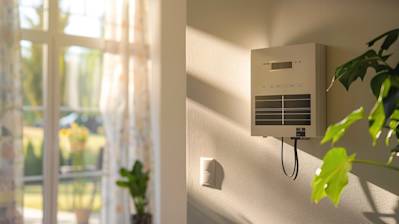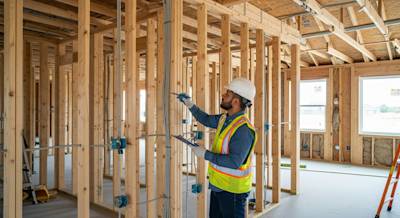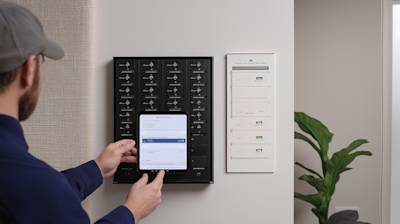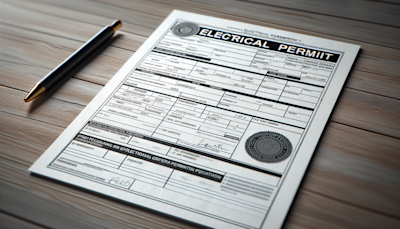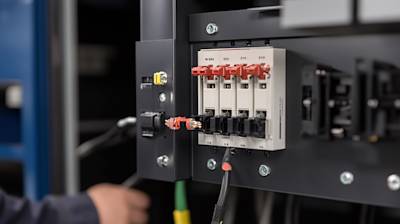Before beginning any significant electrical work by yourself or with a professional electrician, there's one critical step you must not overlook: getting an electrical permit. This article takes a detailed dive into everything you need to know about these permits—what they are, when you need them, how to acquire them, and much more.
What Is an Electrical Permit?
Before discussing the "whats" and "hows," let's delve into understanding precisely what an electrical permit is. An electrical permit is essentially a written authorization provided by a governing body—usually a city or county department. This permit gives approval to conduct any electrical work within their jurisdiction.
Governing bodies demand these permits to ensure that all electrical work complies with the codes and standards set by the National Electric Code (NEC) or any local regulations. This way, they can effectively prevent electrical failures, lower the risk of fires, and, most importantly, ensure safety.
When and Why You Need an Electrical Permit
Under most circumstances, you'll need an electrical permit for any electrical work that goes beyond simple tasks like changing bulbs or outlet covers.
Here are some common situations when a permit is required:
- New construction
- Remodelling projects
- Addition of new receptacles or light fixtures
- Upgrade of an electrical panel
- Wiring a new home or commercial site
- Installing or modifying low voltage systems such as security alarms or communication systems
On the "why" side of things, obtaining an electrical permit guarantees that your project complies with established safety codes. It protects property value, ensures insurance coverage, and ultimately safeguards lives and property by averting potential electrical hazards.
The Process of Obtaining an Electrical Permit
To make the permit-acquiring procedure comprehensible, here are the standard steps that you need to follow, but note that they could vary due to regional differences:
- Preparation: Have all the details of your project handy—what your project is, who's completing the work, the specific location, and the cost of the job.
- Application: Submit an application form to your local city or county office. It can often be done online. Besides your project details, you might need to submit a site plan or drawings.
- Review: The office will review your application, ensuring your intended work complies with local and national codes. The review time varies but can be anything from a day to several weeks.
- Payment: Once approved, you'll need to pay a fee, varying based on project size and complexity.
- Issuance: After payment, the permit is issued, and you're good to get on with your planned electrical work.
Just getting the permit, however, is only half the story told.
What Happens After Obtaining an Electrical Permit?
Post-permit acquisition, all work must align with the proposal you submitted for permit approval. Upon completion, the next critical phase is inspection.
Inspections ensure that the work was done rightfully and in accordance with the codes. Remember, a permit does not guarantee this compliance, but an inspection does. The inspector checks your work, identifies any deviations, and, if satisfactory, gives you the green light.
Frequently Asked Questions about Electrical Permit
Why are electrical permits necessary?
The purpose of electrical permits is to ensure that all electrical work conducted meets the safety standards outlined in the National Electrical Code. This helps to prevent potential electrical hazards that can result in accidents such as fires and electrical shocks. The permit provides documented assurance that the work was inspected and approved by a professional electrical inspector.
When do I need to obtain an electrical permit?
If you're planning to install new wiring, outlets, or electrical appliances, or to change your existing electrical layout, you will likely need an electrical permit. Also, a permit might be required for repairing, altering, or extending any existing electrical installations. However, the requirement may vary from jurisdiction to jurisdiction, so it's always best to check with your local authority.
How do I apply for an electrical permit?
You can apply for an electrical permit through your local government office in most cases. Some jurisdictions now offer online applications, making it much easier and faster. You might need to provide information like your project details, property information, contractor information, etc.
How much does an electrical permit cost?
The cost of electrical permits varies by location and the complexity of the electrical work. For a standard residential project, the cost may be anywhere from $50 to $500. Commercial projects generally require more extensive work and consequently have higher permit costs.
What happens if I don't get an electrical permit?
Skipping the electrical permit could lead to serious consequences. Not only could it put your safety at risk, but it may also void your home insurance coverage if something happened. Improper electrical work can lead to severe incidents like electrical shock or fire. Furthermore, if the local building department finds out, they can issue a stop-work order, imposing fines and demanding the electrical work to be redone or removed.
Can I get an electrical permit after the work has been completed?
Yes, it's possible to get a permit after work has been completed, but it's not recommended. It's known as an "after-the-fact" permit. However, getting a permit after the fact could result in additional costs, as you might need to expose concealed work for inspection or even remove and redo work if it does not meet codes.
How long does it take to get an electrical permit?
The processing time for an electrical permit application depends on the complexity of the project and the workload of the permit office. It could take anywhere from a few days to a few weeks. It's best to apply for the permit well in advance of starting your project.
Pros of Electrical Permits
Safety Standard Assurance
Added Layer of Protection
By acquiring an electrical permit before initiating any electrical change or repair, you're adding an extra layer of protection. This protection is not only for the contractors and electricians operating on the task, but also for the residents of the property. The permit implies that the electrical work will conform to safety standards governed by law, reducing the likelihood of any accidents caused due to faulty wiring or other electrical risks.
Quality Check
When you pull an electrical permit, a city inspector will have to sign off on the work, assuring that the job meets the minimum safety requirements. The inspector will even identify any potential problems that you or your contractor might have overlooked. This quality check by a professional gives you peace of mind.
Legal Compliance
Avoids Legal Hassles
Working with electricity involves regulations to protect individuals and property, and you typically need a permit to undertake such work. By obtaining an electrical permit, you adhere to these laws and avoid unnecessary legal trouble. Working without an electrical permit where one is required can result in heavy fines or the halting of your project until proper permits are obtained.
Insurance Requirements
Most insurance companies demand that any electrical work performed on your property be carried out under an electrical permit. If a fire or other incident is caused by unauthorized electrical work, your insurance company might refuse to cover the cost. Thus, permits protect your insurance coverage.
Increases Property Value
If you ever decide to sell your house, having the appropriate permits for any renovation work undertaken can increase property value. Potential buyers will appreciate knowing that all modifications, including electrical work, have been performed adequately and are up to code.
Cons of Electrical Permits
Time-Consuming
Involves Bureaucracy
Obtaining permits is often famously slow. It typically involves filling out forms, paying fees, and waiting for the permit to be approved. Depending on the size of the project and the local bureaucracy, this process can range from a few days to several weeks.
Delays in Project
The time spent waiting for an electrical permit can cause significant delays in the overall project timeline. As permits need to be authorized before any work can commence, projects may be postponed while the permit is being processed, leading to inefficiency and increased costs.
Additional Costs
Applying for an electrical permit involves a fee which adds to the overall cost of the project. The permit fee varies depending on the size and complexity of the job. For smaller, low-budget projects, the additional cost may seem unwarranted. However, keep in mind that these fees usually contribute to maintaining the system that ensures safety and code conformity.
Limitations on DIY Projects
If you're the type of homeowner who enjoys do-it-yourself projects and prefers saving money by doing home improvement tasks yourself, getting an electrical permit could be a hurdle. Depending on local laws, jurisdictions may restrict certain types of electrical work to licensed electricians only, to ensure safety. This could limit your DIY scope and force you to hire a professional.
Inconsistent Requirements
Depending on where you live, the requirements for when you need an electrical permit can be inconsistent and difficult to understand. What requires a permit in one area may not in another, which can lead to confusion. If you're unsure, it's best to reach out to your local government for clarification.
Summary
Overall, getting an electrical permit is not just a formality, but a crucial step in ensuring the safety of a construction or renovation project. It ensures that all electrical work is up to par with the latest safety codes and regulations. Generally, it's the professionals who understand these codes in depth, hence obtaining an electrical permit serves as proof that the work was performed by a skilled and knowledgeable person. Plus, it provides a record for potential future buyers that the work was completed legally and up to standard.
An electrical permit is not just a requirement, but it also gives individuals peace of mind. This document indicates that your electrical work has been evaluated by an unbiased third party. It means a certified inspector has looked over your project and found it safe. Having this approval can take a lot of worry off your shoulders, especially when you are dealing with something as hazardous as electrical work.
Finally, obtaining an electrical permit can save you from fines and legal troubles down the road. Lacking one can result in hefty penalties, difficulties with insurance claims in case of accidents, and can be a dealbreaker when selling the property. Despite the initial cost and extra time, an electrical permit turns out to be beneficial in the long run, offering protection, assurance, and a smoother transaction when you decide to put your property on the market.
About Sagan Electric
At Sagan Electric of Sacramento, CA, we're not just an electric company, we're a part of the community. Proudly lighting up homes and businesses in the Sacramento area for over a decade, we're a close-knit team committed to ensuring our customers are never left in the dark. Our professional electricians are driven by the belief that great service is more than just making the lights come on, it’s about forming connections, lending a helping hand, and doing truly electrifying work. It’s the Sagan Electric Way. We look forward to lighting up your life.
Tags: electrician, building code, construction permit,
